Abstract
An analysis of data collected during the course of the Oxford Survey of Childhood Cancer has shown that it is possible to recognize different facets of memory bias without systematic checking of individuals' records, and to make use of the biased data. The position of foetal irradiation in the aetiology of childhood cancers has been re-affirmed, but there is no support for the idea that exposure of parental gonads to diagnostic X-rays is conducive to cancer in the next generation.
Full text
PDF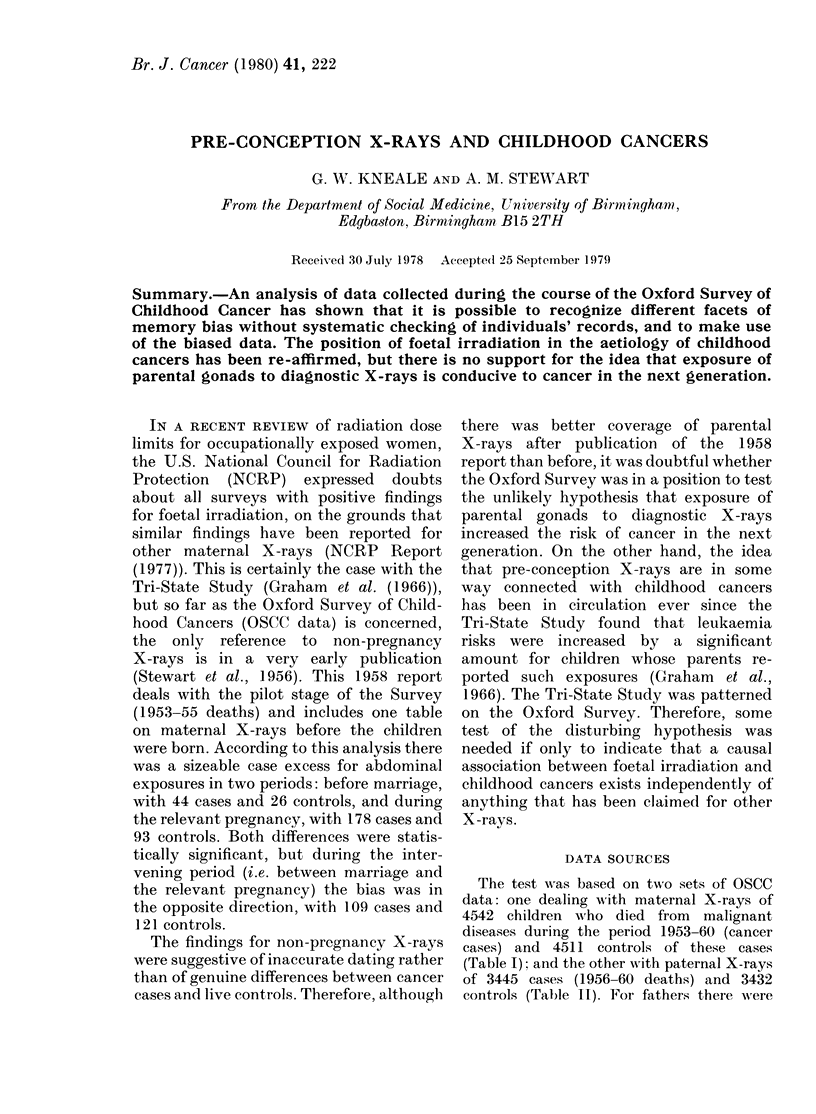
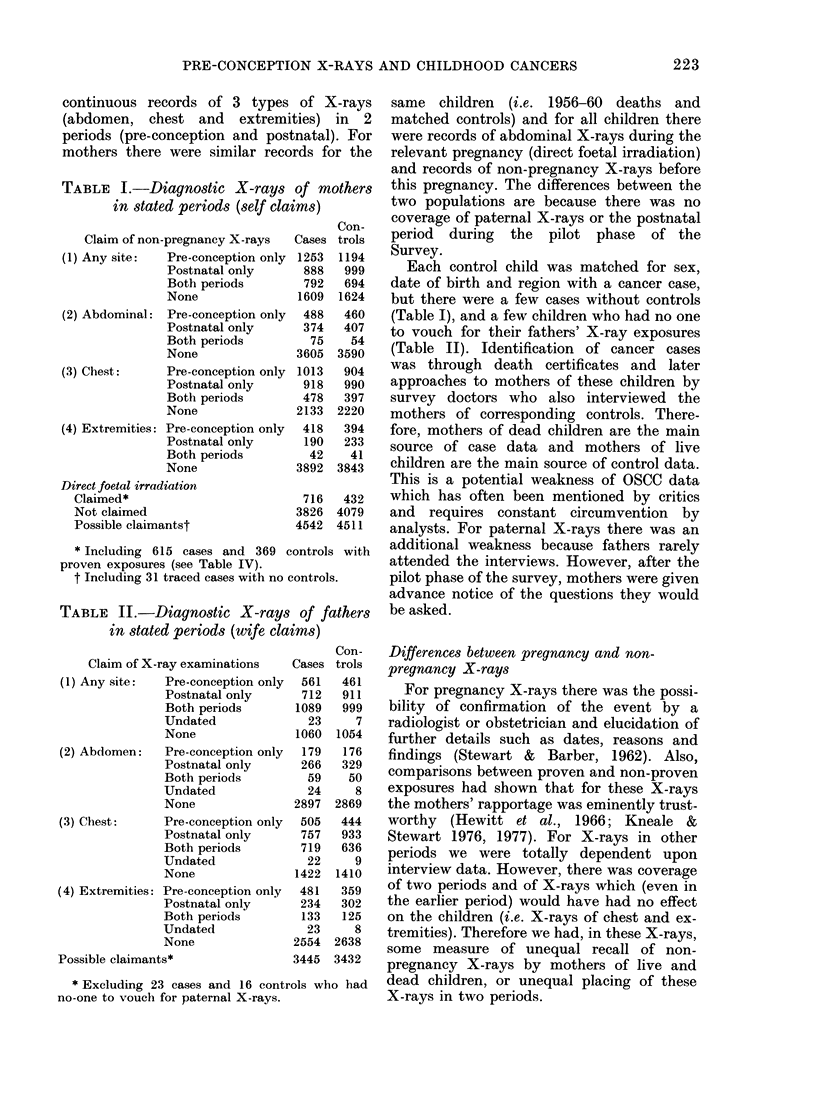
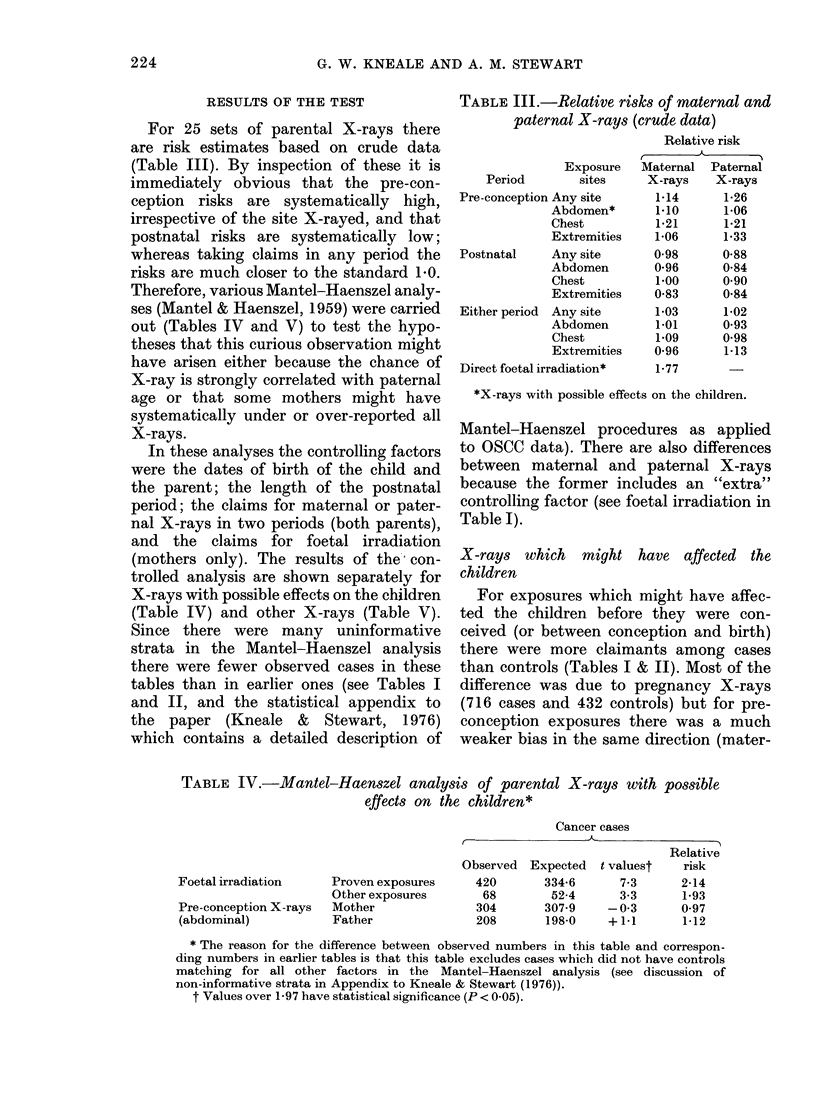
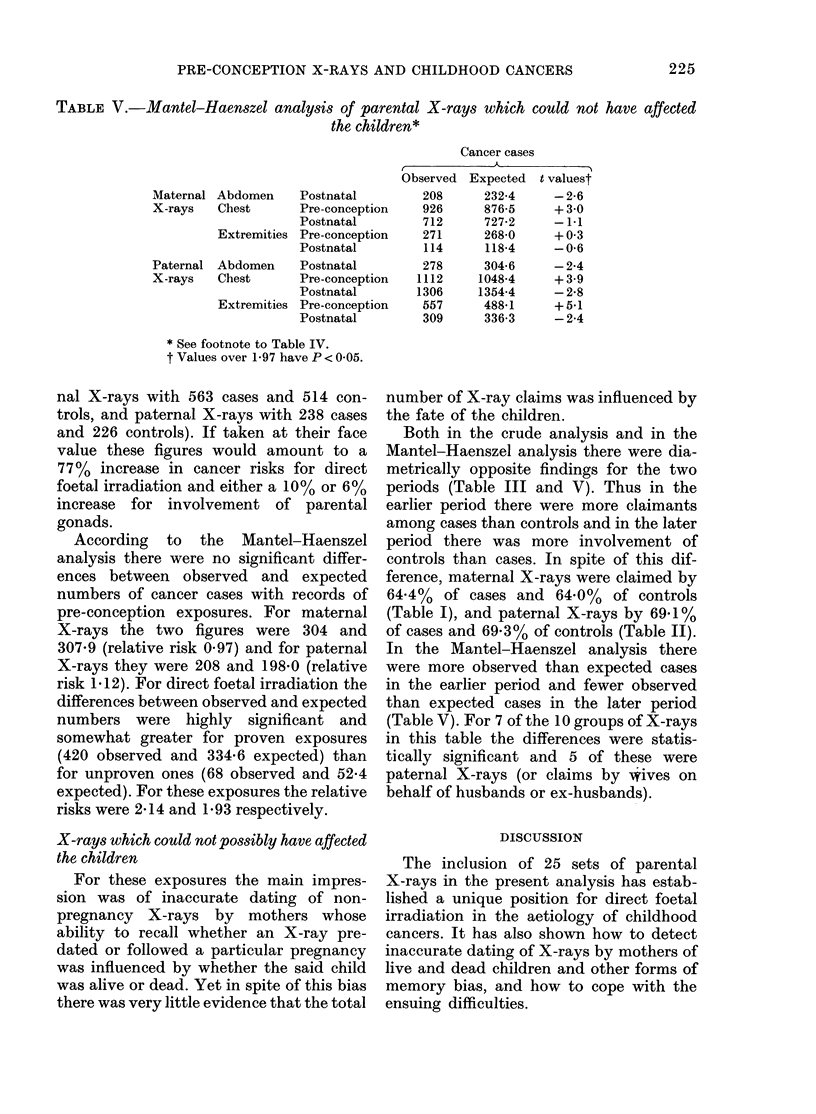
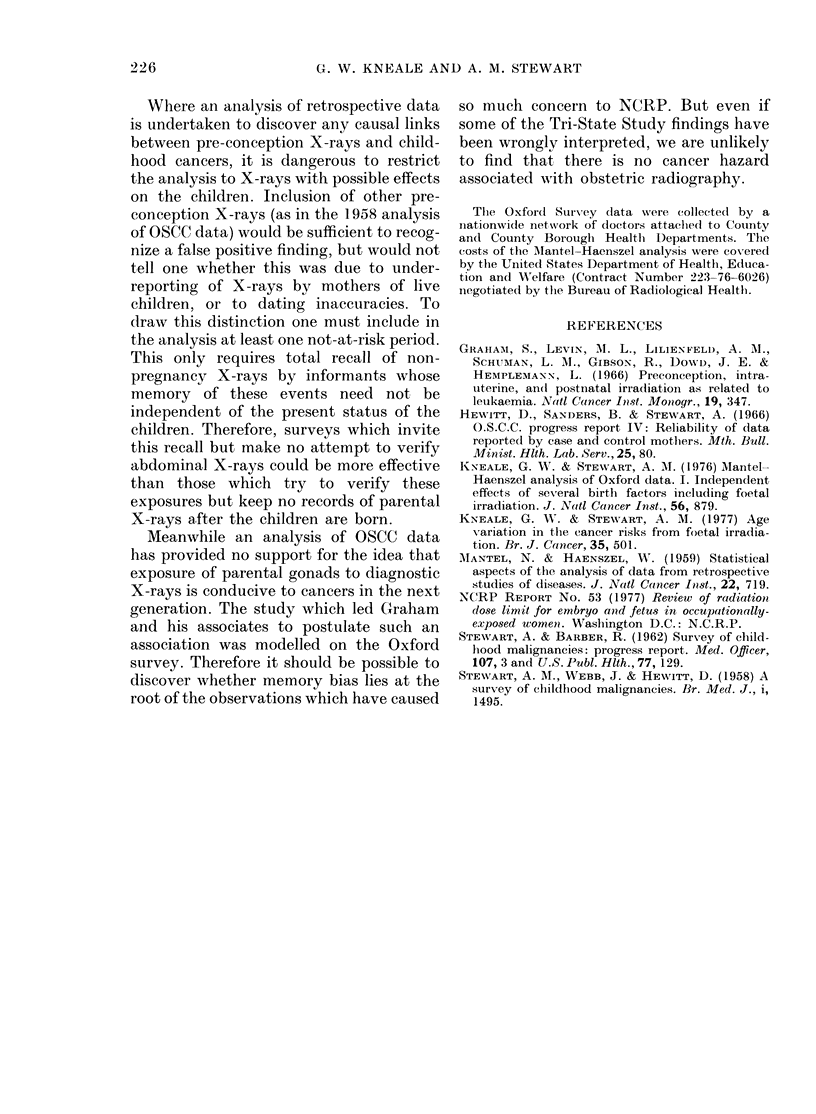
Selected References
These references are in PubMed. This may not be the complete list of references from this article.
- Hewitt D., Sanders B., Stewart A. Oxford Survey of Childhood Cancers: progress report. IV. Reliability of data reported by case and control mothers. Mon Bull Minist Health Public Health Lab Serv. 1966 Feb;25:80–85. [PubMed] [Google Scholar]
- Kneale G. W., Stewart A. M. Age variation in the cancer risks from foetal irradiation. Br J Cancer. 1977 Oct;36(4):501–510. doi: 10.1038/bjc.1977.220. [DOI] [PMC free article] [PubMed] [Google Scholar]
- Kneale G. W., Stewart A. M. Mantel-Haenszel analysis of Oxford data. I. Independent effects of several birth factors including fetal irradiation. J Natl Cancer Inst. 1976 May;56(5):879–883. doi: 10.1093/jnci/56.5.879. [DOI] [PubMed] [Google Scholar]
- MANTEL N., HAENSZEL W. Statistical aspects of the analysis of data from retrospective studies of disease. J Natl Cancer Inst. 1959 Apr;22(4):719–748. [PubMed] [Google Scholar]
- STEWART A., WEBB J., HEWITT D. A survey of childhood malignancies. Br Med J. 1958 Jun 28;1(5086):1495–1508. doi: 10.1136/bmj.1.5086.1495. [DOI] [PMC free article] [PubMed] [Google Scholar]


